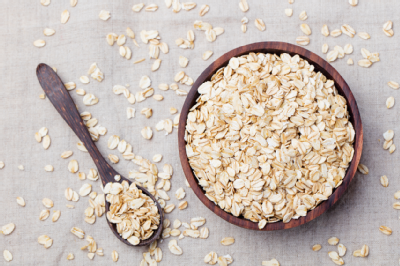Oats
- Most people with coeliac disease can eat gluten free oats.
- Many standard oats are produced in the same place as wheat, barley and rye, which makes them unsafe because they can be contaminated.
- A very small number of people are still sensitive to gluten free oats.
 Are oats gluten free?
Are oats gluten free?
Oats contain avenin, which is a protein similar to gluten. Research has shown that most people with coeliac disease can tolerate gluten free oats with no problems.
The issue is that sometimes oats are produced in the same place as wheat, barley and rye, and then become contaminated with these other grains.
Only oats labelled gluten free may be eaten by people following a gluten free diet.
A very small number of people with coeliac disease may still be sensitive to gluten free oat products.
It’s up to you to decide whether to include gluten free oats in your diet – some people prefer not to try them. However, they do offer important benefits:
- they can add variety to the gluten free diet
- oats provide a good source of soluble fibre, which can maintain a healthy gut and may help to treat high cholesterol and keep blood sugars stable.
Gluten free oats and oat products are listed in our Food and Drink Information.
Gluten free oats can be introduced to your diet at any stage. If you have ongoing symptoms or any concerns whilst including gluten free oats in your diet, please review their use with your health professional who can monitor you and give you specific advice.
Labelling of oats
Oat products are often labelled as '100% oats', 'pure oats' or 'organic' oats. These terms do not tell you whether or not the product is gluten free.
It’s a legal requirement for grains which contain gluten, including oats, to be listed in an ingredients list if they have been used as a deliberate ingredient, regardless of the amount used. Read more about what to look for on food labels to help you find out what is suitable for you.
Uncontaminated oats that test at 20 parts per million (ppm) gluten or less may be labelled ‘gluten free’.